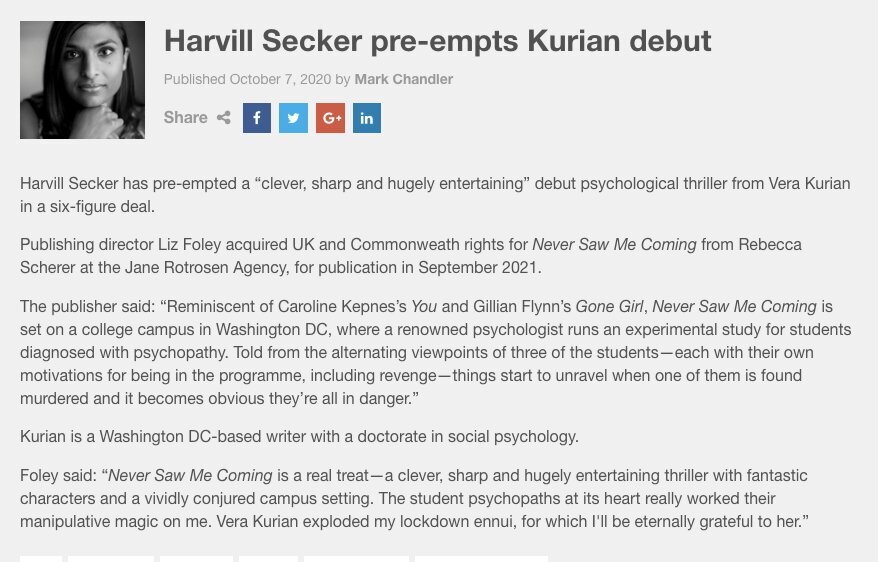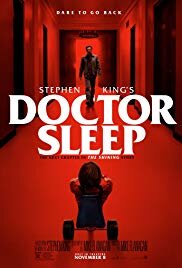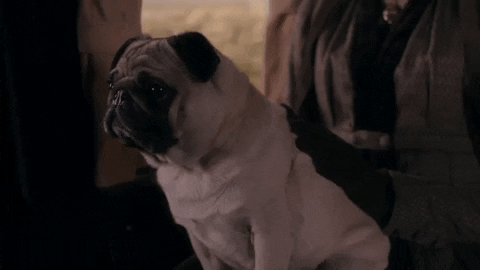As someone who has had the misfortune of writing longer short stories/ novellas, I sympathize with anyone who has tried to publish them because I have spent so much time scouring the internet screaming WHY WONT YOU TAKE MY MASSIVE TOME THAT ISNT QUITE MASSIVE ENOUGH TO BE A NOVEL. Below is a working list of literary magazines, contests, and small presses that publish longer short stories and/or novellas. This is a list for literary fiction, not genre fiction and of course those lines can be blurred but if you've written something that can be considered genre you should probably familiarize yourself with the magazine because these markets are indeed different than the stuff I see in genre magazines. This is not a exhaustive list, it is a working list I will update, and mainly includes magazines I know to be well respected and presses I have seen with my own two eyes. (I have submitted to many of these.) [updated 1/20/21]
Magazines and Small Presses
Alaska Quarterly Review, up to 70 pages. One of my white whales! A great magazine that has been beloved for so long. They only take hard copy submissions.
A Public Space doesn't list an upper length limit, and specifically says "novellas and novel excerpts are always welcome."
BatCat Press takes stuff of any length. They publish weird, beautiful books; this is not a standard market--I think they are looking for stuff that is "out there." TEMPORARILY CLOSED BC OF COVID
Blackbird is a well-respected online magazine. If you have a piece that is 8k or over, you can query first to see if they're interested. (that said, the magazine sometimes is on the higher end of how long it takes to get back to writers.)
Big Fiction, 7,500 – 20,000 words, fiction in any genre (except children’s and YA) with a clear literary intent, and essays as narratively straightforward or as experimental as you envision.
Boulevard takes stories up to 8k
Conjunctions is one of the most well-respected magazines out there. under 8k
The Collagist (a magazine run by Dzanc Books) takes stuff up to 8 k
Online magazine failbetter says they publish novellas, but given that it is online, I would page through to see how long their stories actually run.
Fiction is old-school respectable. Their website says they prefer under 5k, but would consider longer works. (read: long shot)
Gettysburg Review up to 10k. Interpret as you may: "We do not publish genre fiction—mystery, crime, science fiction, fantasy, and the like—but are certainly not opposed to considering work that self-consciously employs the tropes of more formulaic writing for more sophisticated literary ends." They take about half a year to get back to you, but are a great market.
Malahat Review up to 8 k, Canadian lit mag. simultaneous submissions ok for normal submissions but not contest submissions. They also run a novella competition every other year (10-20k)
Massachusetts Review takes stories up to 8 k, but they also have a digital release program called Working Titles that has a 7-25k limit.
Missouri Review "While there are no length restrictions, longer manuscripts (9,000 to 12,000 words) or “flash fiction” manuscripts (2,000 words or less) must be truly exceptional to be published." Extremely competitive market.
One Story 3-8k, this should be one of your top markets. Given that they only publish one story per issue I wish they would take longer stuff :(
Paris Review does not have length restrictions; and now they finally have electronic submissions!
Ploughshares Solos 7,500-20k, extremely competitive market
New England Review 20k
Nouvella Books 10-40k. They publish beautiful little (literally) books. This isn't run like a standard literary magazine (because it isn't one), but they view their novella line as a way of investing in and launching emerging writers.
Puerto del Sol, no exact word count listed, but previously it was stated as 10 k
Seattle Review, at least 40 pages. Recently they stopped having a print edition in favor of an electronic edition only.
Split Lip Press open for novella submissions July 1 - September 1
Yemassee, up to 8 k
Incidentally, and I'm thinking of one magazine in particular, don't submit anywhere that has a $20 or higher submission or reading fee. Magazine submission fees and contests are two different things. Submission fees are controversial, but a few bucks doesn't seem unreasonable to me given how literary magazines are struggling. For more than a few bucks--you do the math, it isn't ethical.
Prizes
All of these prizes are yearly or close to it and have entry fees. There are of course more contests than just these, but these are the ones I know of that I would call good. (ie, the entry fee/ prize ratio isn't eyebrow-raising, the judges are well known literary writers, the winners go on to do well in their careers). Maybe this is an obvious tip, but if you're submitting to a contest you should wait until a few days before the deadline. When submitting simultaneously, if you submit to a contest in January that doesn't have a deadline until March, there's a chance your piece will get picked up somewhere else first and then you can't get your entry fee back from the contest when you withdraw. Submitting early doesn't help you in any way.
Heritage Future Great Story Project (formerly 1888, formerly Black Hill Press) check back periodically to see if this opens up. In the past they accepted novels, novellas, and short story collections. They publish beautiful books--I love the artwork they use.
Black Lawerence Press small press that publishes full length novels, poetry, collections, anthologies, etc. The Big Moose prize is for "novels" but their submission guidelines say 90 to 1,000 pages--90 pages would put you within the range of a novella.
Calvino Prize: up to 25 pages, but note that this prize is specifically a prize in honor of Italo Calvino, and is intended for works along those lines.
Driftwood Press this is a new listing: they are currently open for novella submissions (10-30k) with the intended publication date of 2020
Dzanc books currently not accepting, but in the past has run a novella contest, 18-40k
Gold Line Press June to August in the past, check back for a chapbook competition 7 - 15k
The Juniper Prize for Fiction has one prize annually for a short story collection, and one for a novel, but their definition of a novel apparently runs from 150 to 350 pages. (under 300 is pretty short for a Big 5 produced novel, and 150 is nearly never done for nonfamous people)/
Mary McCarthy Prize in Short Fiction (Sarabande Books): 150-250 pages. Sarabande is a really well respected literary small press.
Miami University Press novella contest 18-40k
Newfound Prose Prize: 15 to 60 double-spaced pages of prose (fiction or nonfiction).
Texas Review Press Clay Reynolds Novella contest 20-50k
My experiences getting longer stuff published.
1) You need to be really patient and 2) you need to have your eyes peeled for random opportunities that pop up that aren’t necessarily regularly run literary magazines. Of my 7 fiction publications, 3 of them are in the “long to the point of being hard to place” category. The longest, "Twelve Years, Eight-hundred and Seventy-two Miles," had an 18 k word count, which meant really limited markets that would take it—I had to hunt and did so persistently; I started submitting it in 2013 and got it accepted in 2015. “The Bleeding Room” was 8,600 words—I submitted it to half a dozen places in 2002, stopped for 10 years, then submitted it to one magazine and placed in a contest. Note that both these markets—Day One and Glimmer Train—no longer exist; the market changes constantly. I have another long one coming out at the end of this month from Radix Media, which resulted from me seeing a random call for submissions, probably via either Facebook or Submittable’s newsletter. There are a lot of these one-off opportunities that you might not find out about if you aren’t subscribed to newsletters or don’t poke around on social media occasionally. Incidentally, I’ve never found Duotrope to be particularly useful for the one-off stuff, just the regular lit mag data. Where does this leave me? With one unpublished 8,600 word story that has my second-highest “we liked this but no, please submit again” rate—I’ve pretty much come to the realization that that particular story will probably only find its home in a collection. The other is a 10k sci fi story—the Venn diagram between “sci fi” and “leans literary” and “long ass” is quite small—but this would be a good story for one of these one-off opportunities. In sum— keep your eyes open and your chin up. Also make sure that your word count is worth it—that 10k story was trimmed down from 11,200 and those were only surgical line edits.
Happy hunting.
PS, this post gets a lot of traffic. If you’d like to support me, my novel, Never Saw Me Coming, is out this fall— check it out here.












